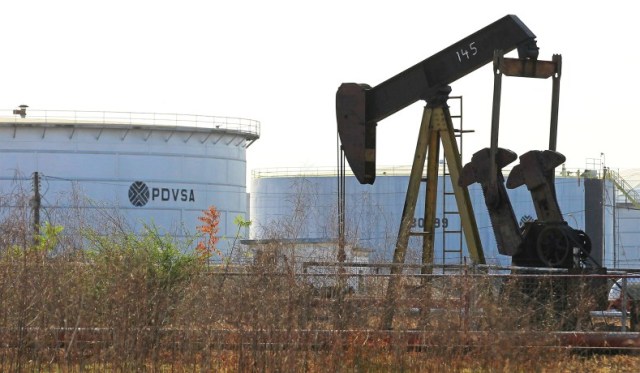
mid China’s various threats to the United States, a new one has emerged: The Asian country is undermining U.S. foreign policy on Latin America by purchasing oil from Venezuela, a clear violation of U.S. sanctions. China’s misbehavior compromises U.S. efforts to make a democratic transition in Venezuela. The point of the U.S. sanctions is to apply “maximum pressure” to the Maduro regime and its elite so that the ruling coalition is forced to negotiate a political transition in Venezuela. But if Beijing keeps purchasing oil from Venezuela, the sanctions will not fulfill their objective.
In February, China bought three-quarters of all Venezuelan oil exports. As a result, Venezuela’s oil export increased to 700,000 barrels per day in February, its highest level in a year, doubling its exports from June 2020. This is all according to internal documents of the Venezuelan state-owned oil industry PDVSA, and new tracking data made available by the London financial-data provider Refinitiv Eikon.
Since buying oil from Venezuela is prohibited by the U.S. Treasury Department, China did not buy the oil through its state-owned oil industry, China Petroleum Corp. Instead, the transactions were made through a series of Chinese companies that do not have any track record of oil trading. These companies are usually called “phantom clients,” as they serve as an intermediary for doing business with a sanctioned company. This has allowed China Petroleum Corporation to report zero oil purchases from Venezuela since late 2019.
China’s transgression of the American sanctions imposed on Venezuela is anything but an isolated endeavor. According to the firm Kpler, China is also importing oil from Iran, perhaps the most heavily sanctioned nation in the world. Kpler estimates that roughly 900,000 barrels of oil are being shipped from Iran to China per day.
Moreover, China just agreed to invest $400 billion in Iran over the next 25 years in exchange for Iranian oil. The investment will cover numerous sectors, including banking, telecommunications, ports, railways, health care, and information technology.
There are four important takeaways for American foreign policy from all of this information.
First, sanctioned regimes learn rather rapidly how to avoid foreign sanctions. Recently, the Venezuelan opposition revealed that the Maduro regime has been sending gold to Mali via Russian planes. The gold is refined in Mali and then sold in the United Arab Emirates. The opposition report states that the scheme allowed the Maduro regime to earn profits of at least $1 billion.
Second, the U.S. government is not adjusting its policy of sanctions to these new geopolitical challenges, which is an issue I raised last October. At the time, I wrote about the mechanism that Iran has been using to ship gasoline to Venezuela, which is now being used to ship over 40,000 barrels of gasoline per day to Venezuela. This is in exchange for Venezuela giving Iran not only oil and gold but also control of key PDVSA refineries, such as El Palito refinery, which can process over 140,000 barrels of fuel per day.
Third, China is actively seeking to undermine America’s strategies on Venezuela and Iran, as both strategies assume the U.S. ability to pressure these two regimes: in Venezuela, so that the country experiences a political transition, and in Iran, so that the Rouhani regime is forced into a new nuclear negotiation.
And fourth, the Biden administration remains reluctant to impose sanctions on China, despite Beijing’s misbehavior. U.S. officials told the Wall Street Journal that even though they are aware that China is violating U.S. sanctions on Venezuela, the administration will be careful of using any measure against Beijing because, “if we hit hard, they could retaliate.”
Therefore, the Biden administration has to make a decision regarding America’s policy of sanctions. My recommendation is that the time to act is now, before these hostile regimes keep tightening their military, energy, and economic ties. The U.S. has to adjust its policy of sanctions to the actions of China, and, despite the risk of retaliation, it has to penalize Beijing for its misbehaviors. Otherwise, the sanctions will not achieve their intended objectives (whether these are the democratization of Venezuela or achieving a new Iranian nuclear deal). In fact, the deficient application of the sanctions will make things even worse for the United States, the people of Venezuela, and the balance of power in the Western Hemisphere — by increasing Iran’s and China’s influence in the region through Venezuela.

